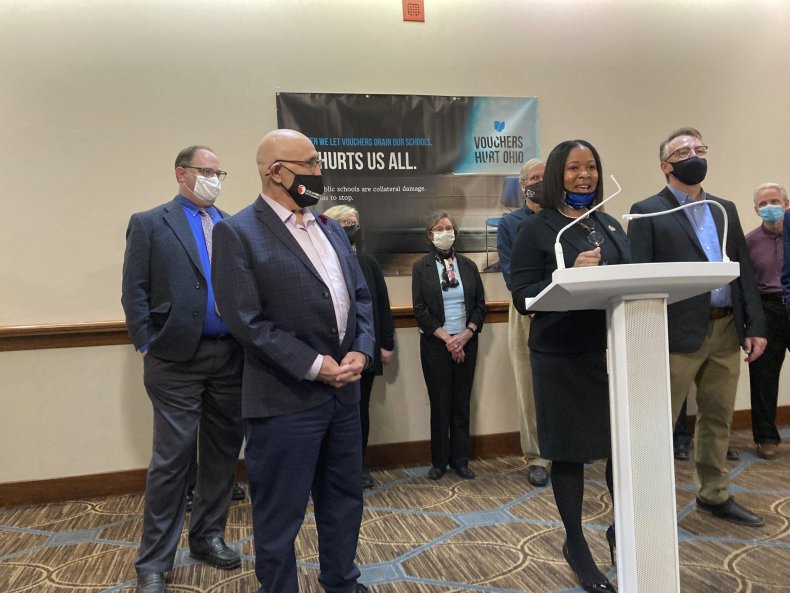About 100 Ohio school districts filed a lawsuit Monday challenging the state's 25-year-old school voucher system, alleging that it is providing too much funding to private schools over public schools and is even causing the resegregation of some school districts.
The lawsuit says the EdChoice Program is taking away funding that should be going to school districts and gave $2 billion to private schools over the past decade through the voucher program. Supporters of the suit say this goes against the goals laid out in the state Constitution for a "system of common schools," according to The Columbus Dispatch.
"Funding schools that aren't for everybody is not the business of the Ohio General Assembly, and it is not the responsibility of Ohio taxpayers to pay for these private schools," Eric Brown, a member of the Columbus School Board, said in a press conference announcing the lawsuit Tuesday.
The voucher program sometimes allows money exceeding tuition at a private school to be given to the school and can drive some students out of the district close to their homes, which could use the money, the lawsuit alleges.
Over 60,000 out of Ohio's 1.7 million students use the voucher program, which was established in 1996 to help students in the Cleveland public school system.

Many of the private schools attended by voucher students aren't subject to state regulation and, unlike public schools, can base attendance on students' intellectual capacity, athletic skills or religious faith, the lawsuit said.
About 100 districts, part of the Vouchers Hurt Ohio coalition, have joined the lawsuit to date.
Voucher proponents called the complaint an attack on parental choice and noted that the U.S. Supreme Court upheld Ohio's initial version of vouchers in 2002.
"This shows the deep disdain these greedy big government elitists have for parents to make decisions that are best for the education of their children," said John Fortney, a spokesman for Senate President Matt Huffman, leader of the GOP-majority Senate.
"Parents chose these schools for a reason, and it is because they believe they give their children the best chance to flourish as a student," Troy McIntosh, executive director of the Ohio Christian Education Network, said in a statement.
An Associated Press message was left with the state Education Department seeking comment.
Enrollment at Richmond Heights city schools in suburban Cleveland consisted of about 26 percent white students and 74 percent students of color before the EdChoice Program was expanded in 2005, the lawsuit said. By contrast, just 3 percent of Richmond Heights' students are white today, even though four of every 10 city residents are white.
Meanwhile, while the district receives $287,000 in state funding for its 700 students, the state is paying more than $675,000 for about 100 EdChoice students in the district, according to the lawsuit.
"The private school voucher program is resegregating our schools, and that is unfair, unlawful and unconstitutional," said Nneka Jackson, a Richmond Heights school board member.
Parents of white students are typically more capable of closing the gap between an EdChoice voucher amount and a private school's total tuition than parents of minority students, making it harder for children of color to access the program, the lawsuit said.
The state budget approved by lawmakers last year increased the maximum amount for vouchers to attend private schools from $4,650 to $5,500 for children in grades K-8 and from $6,000 to $7,500 for high school students.
Private schools will receive about $250 million in voucher payments this year, siphoning off money desperately needed by already underfunded schools, said William Phillis, executive director of the Coalition of Equity & Advocacy of School Funding.
His group's 1991 lawsuit led to several court rulings declaring that Ohio's system at the time of school funding was unconstitutional.
The Associated Press contributed to this report.

Post a Comment